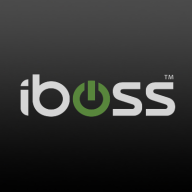


Zscaler Zero Trust Exchange Platform and Cisco Secure Client compete in the secure connectivity market with distinct features. Zscaler stands out for its seamless connectivity and ease of integration, while Cisco is notable for its reliable VPN connection and secure remote access.
Features: Zscaler Zero Trust Exchange Platform promotes secure connectivity through features like automatic VPN connections, Zero Trust Architecture, CASB, and cloud DLP without frequent authentication. Cisco Secure Client, including AnyConnect, offers a stable and reliable VPN connection, multi-factor authentication for secure remote access, and easy integration with enterprise networks.
Room for Improvement: Zscaler faces challenges with connectivity speed, support for legacy systems, high costs, and latency issues related to its multi-tenant environment. Improvements are needed in its interface, caching, licensing, and third-party access. Cisco Secure Client requires better cross-platform compatibility, a more modern interface, and enhanced reconnect features. Setup complexity and frequent updates are also areas for improvement.
Ease of Deployment and Customer Service: Zscaler's deployment adaptability can be hampered by latency issues from its multi-tenant architecture, while customer support is responsive though sometimes lacking depth. Cisco Secure Client offers robust support with various licensing options, but the frequent interface updates might need attention.
Pricing and ROI: Zscaler is seen as expensive but provides a competitive price at scale, offering a clear ROI through improved security and networking efficiencies. Cisco Secure Client is also costly with a licensing structure based on user count and terms, but aligns with market competition and offers appealing perpetual licensing for large organizations.
| Product | Market Share (%) |
|---|---|
| Zscaler Zero Trust Exchange Platform | 16.9% |
| iboss | 2.3% |
| Cisco Secure Client (including AnyConnect) | 4.0% |
| Other | 76.8% |



| Company Size | Count |
|---|---|
| Small Business | 6 |
| Midsize Enterprise | 6 |
| Large Enterprise | 5 |
| Company Size | Count |
|---|---|
| Small Business | 27 |
| Midsize Enterprise | 10 |
| Large Enterprise | 45 |
| Company Size | Count |
|---|---|
| Small Business | 16 |
| Midsize Enterprise | 11 |
| Large Enterprise | 41 |
Iboss offers a comprehensive cloud-based security platform valued for its scalability and autonomous features, ensuring robust security with easy deployment and management capabilities.
Renowned for its robust security architecture, Iboss integrates seamlessly within diverse networks, delivering efficient granular filtering and advanced content categorization. Its single pane of glass console provides ease of management, allowing rapid scalability suitable for rapidly deploying environments. Operates in BYOD setups due to inline filtering without device installation. Integration with cloud-based applications enhances user control, and features like SASE, SSL inspection, and ChatGPT risk protection stand as highlights. Despite its strengths, users have pointed out areas for enhancement like direct navigation in reports, SSL decryption, and better cloud integration while having room to improve data loss prevention.
What are the most important features of Iboss?The usage of Iboss spans educational institutions, specifically K-12, to enforce internet policies, protect data, and support remote work environments. It provides web filtering and security frameworks to ensure safe browsing. Its platform-as-a-service model offers flexibility for both cloud-based and on-premises requirements, integrating seamlessly to deliver enhanced security features suitable for various deployment needs including zero trust, CASB, and network security for work-from-home setups.
Cisco Secure Client (including AnyConnect) delivers reliable, stable connectivity and seamless integration with Active Directory, ensuring secure remote access through a one-click VPN capability. It's lightweight, user-friendly, and supports major operating systems, enhancing remote work flexibility.
Cisco Secure Client, including AnyConnect, is designed for secure remote connectivity, offering multi-factor authentication, advanced malware protection, and automatic error diagnostics. Compatible with Windows, Mac, and Linux, it provides an intuitive setup and a clean interface. While it excels in ease of use, issues such as the outdated Linux build and the need for modern UI enhancements persist. Users also face connectivity challenges with frequent updates and high prices, alongside the need for better endpoint security and system integration. Popular for remote work, it facilitates secure access to corporate networks, allowing seamless interactions with resources like emails, documents, and applications.
What key features does Cisco Secure Client offer?Cisco Secure Client is widely implemented across industries for secure remote connectivity, especially in sectors requiring constant access to servers, data centers, and research labs. It supports remote work by enabling employees in diverse fields to access internal resources efficiently, maintaining productivity and security.
Zscaler Zero Trust Exchange enhances security with seamless cloud-based connectivity and VPN-less operation, offering integration with multiple identity providers and advanced security features, suitable for remote work environments.
Zscaler Zero Trust Exchange provides secure, adaptive connectivity without traditional VPNs, allowing organizations to replace legacy systems and bolster remote work security. The platform offers cloud-based protection, single sign-on, dynamic URL categorization, and scalable solutions. While advanced security features like DLP and threat protection enhance data protection, users may face issues with speed, connectivity, and some customization options. Integration challenges, latency due to multi-tenant hosting, reporting delays, and licensing costs require consideration. It supports secure internet access and private application security, ensuring traffic control and data compliance.
What are the key features of Zscaler Zero Trust Exchange?Zscaler Zero Trust Exchange is deployed across industries to secure remote access and enforce zero trust principles. Organizations in finance, healthcare, and technology sectors utilize it for secure internet access and visibility into cloud applications, enhancing performance and compliance in dynamic environments.
We monitor all ZTNA as a Service reviews to prevent fraudulent reviews and keep review quality high. We do not post reviews by company employees or direct competitors. We validate each review for authenticity via cross-reference with LinkedIn, and personal follow-up with the reviewer when necessary.